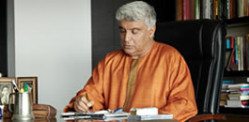It argued that the legislation aims to address "historical injustices".
On March 11, 2024, India’s Union home ministry officially released the regulations for the Citizenship (Amendment) Act (CAA), more than four years after its passage in Parliament.
The law aims to expedite the citizenship procedure for non-Muslims who arrived in India from Afghanistan, Pakistan and Bangladesh before December 31, 2014.
The implementation of the act has sparked widespread protests.
The announcement clears the path for undocumented immigrants from the three neighbouring countries to potentially obtain citizenship.
The delay in implementing the law stemmed from the delayed notification of its rules.
Officials have confirmed that the application process for eligible individuals seeking Indian citizenship under this law will be conducted online.
These regulations were established several months after Union Home Minister Amit Shah assured that this would be accomplished before the upcoming national elections in 2024, slated for this summer.
Parliament ratified the CAA on December 11, 2019, with its notification occurring within 24 hours.
According to parliamentary protocol, the rules for any legislation should have been formulated within six months of presidential approval; otherwise, an extension would be required from the Committees on Subordinate Legislation in both the Lok Sabha and Rajya Sabha.
The Union home ministry regularly sought extensions from committees to finalise the rules allowing eligible individuals to apply for Indian citizenship.
The implementation of the Citizenship (Amendment) Act (CAA) was a significant electoral promise of the BJP during the previous Lok Sabha and the 2021 assembly elections in West Bengal.
In October 2022, the Union government’s decision to authorise collectors in two districts of Gujarat to issue citizenship certificates to non-Muslims from neighbouring countries under the Citizenship Act, 1955, spurred the Matuas of Bengal to reassert their demand for the CAA’s implementation.
BJP leaders in Bengal viewed this as the initial step towards enforcing the CAA.
The Matuas, who belong to the Dalit Namasudra community, migrated from East Pakistan (now Bangladesh) in 1947 and during the 1971 India-Pakistan war.
They constitute a significant portion of voters in the northern and southern districts of Bengal bordering Bangladesh.
The ruling Trinamool Congress in West Bengal is against the Citizenship Amendment Act, deeming it unconstitutional.
The enactment of the CAA sparked protests, with critics of the law contending that it was both discriminatory and unconstitutional, as it excluded Muslims and linked faith with citizenship in a secular nation.
In October 2022, the Union government informed the Supreme Court that the CAA does not differentiate based on religion but rather distinguishes based on “religious persecution”.
It argued that the legislation aims to address “historical injustices”.
The government underscored that India serves as the “only rational and logically feasible refuge” for individuals who have endured persecution due to their religious identities in the three neighbouring countries.
It refuted the notion that the CAA targets any specific community as “incorrect, baseless, and intentionally mischievous”.
Furthermore, the government asserted that the CAA does not infringe upon the fundamental principle of secularism.
Over 200 interconnected petitions have challenged the legality of the 2019 law, citing religious discrimination against Muslims and arbitrary decision-making.
Among the petitioners are the Indian Union of Muslim League, Congress leader Jairam Ramesh, Lok Sabha member Asaduddin Owaisi, Rashtriya Janata Dal leader Manoj Jha, TMC’s Mahua Moitra and the All Assam Students’ Union.
The government has asserted that there were legitimate grounds and a valid exercise of legislative authority in selecting specific communities and countries to be covered by the CAA.
It further stated that the subject matter falls beyond the scope of judicial review.
Indigenous communities in the northeast have also voiced opposition to the Citizenship Amendment Act, fearing an influx of undocumented immigrants from Bangladesh.
They have organised protests against the CAA throughout the region.
The first wave of protests against the legislation in the region occurred in December 2019, resulting in five deaths from police gunfire.






























































